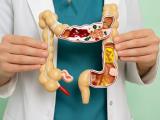If you were to ask our grandmothers when is the best time to sit at the table, they would tell you without hesitation: "In the morning when the birds sing!" And they would be right. Today, this is also confirmed by numerous scientific studies that are returning to nature and the rhythm of life as our ancestors knew it – thus, early breakfast, hearty lunch, and a lighter dinner.
The science of recent years is increasingly leaning towards the idea that it's not only important what you eat, but also when. Let's take, for example, a study presented by the American Association of Endocrinology. Endocrinology is the branch of science that deals with hormones – those substances in our body that, among other things, regulate appetite, blood sugar, mood, and energy.
Food Before Noon - Health for the Whole Day?
A group of researchers wanted to examine what happens to blood sugar levels if the majority of daily food is consumed by 1 p.m. This doesn't involve any strict diet or starvation. On the contrary – participants ate the same amount of food as usual, only distributed differently. By 1 p.m., they had consumed 80% of all calories, and the remaining 20% was spread till the evening.
For example: if someone consumes around 2000 calories a day, following this pattern, they would eat 1600 by 1 p.m. and the remaining 400 throughout the rest of the day. This is a known form of time-restricted eating, which is becoming increasingly popular.
This way of eating showed interesting results in ten volunteers who were overweight and had prediabetes. Prediabetes is a condition where a person has slightly elevated blood sugar levels, but not high enough to be classified as type 2 diabetes. In Slovenia, according to the National Institute of Public Health, about 15% of adults are estimated to have prediabetes, although most are unaware of it.
What Did the Researchers Find Out?
The experiment lasted for two weeks. During the first week, the participants ate "normally," with half of their calories consumed after 4 p.m. During the second week, they ate most of their food by 1 p.m. The results were astounding. The body regulated blood sugar much better, and the time when blood sugar was too high significantly decreased.
This improvement wasn't due to weight loss – there was no significant change in body weight. The main reason for the improvement was the timing of meals.
Dr. Joanna Bruno, an endocrinologist from the University of New York who led this study, emphasized that this way of eating can help prevent prediabetes from progressing into full-blown diabetes. Knowing that type 2 diabetes is one of the most common chronic diseases globally – with 1 in 11 adults affected according to the WHO data – such a dietary approach can mean a lot.
What Does Folk Medicine Say?
Even those of us who have been involved in folk medicine and natural health approaches for years know that meal timing has never been unimportant. In folk wisdom, it has long been believed that a person should eat when their stomach is like a clock, meaning in the morning and at noon, not late in the evening when the body is supposed to rest and rejuvenate.
Ancient healers knew that the body has the most strength for digestion and nutrient utilization in the morning. This ability decreases in the afternoon and almost shuts off in the evening. If you eat in the evening when the stomach should be resting, not only are you burdening the digestive system, but you are also disrupting insulin – the hormone that helps regulate blood sugar. Insulin works slower in the evening, meaning blood sugar remains high for longer.
How Much Sugar Is Too Much?
For a healthy adult, the recommended fasting glucose value is between 3.9 and 5.5 mmol/L. If the value is higher than 6.1 mmol/L, it could indicate prediabetes. If it surpasses 7.0 mmol/L, it almost certainly indicates type 2 diabetes. The danger lies here: many people are unaware of these numbers until it's too late.
A study published in the Journal of Clinical Endocrinology and Metabolism showed that early breakfasts can improve insulin sensitivity even in those without sugar issues but who simply wish to boost their metabolism. By comparing people who had rich breakfasts with those who had heavy dinners, the study noted that breakfast eaters used 33% more energy throughout the day and had more stable blood sugar levels.
What Does This Mean for You?
Put simply – if you want to enhance your health, prevent diabetes, or just lose weight without suffering, try to follow this rule: eat more until noon, less in the evening. You can benefit from folk wisdom: "Eat breakfast like a king, lunch like a commoner, and dinner like a beggar." This proverb didn't come about for no reason!
Most sugar is released into the blood after consuming carbohydrates, especially simple ones – like sugar, white bread, pasta, cakes, juices... If you consume these items in the morning, your body will be much better at utilizing them. But if you eat them in the evening when you are barely moving on the couch, they will likely end up where you don't want them – in fat cells.
What About Fasting? Is It Suitable for Everyone?
When talking about time-restricted fasting, where you eat within a specific time window (e.g., between 7 a.m. and 3 p.m.), it can be a gentle and natural way to regulate your diet. People who follow this approach often report having more energy, better digestion, less bloating, and even improved concentration.
However, it isn't suitable for everyone – individuals with certain hormonal issues, chronic diseases, or older adults who are malnourished should discuss this with a doctor or specialist beforehand.
What Does Statistics Say?
According to the International Diabetes Federation, by 2025, there will be over 700 million people worldwide with type 2 diabetes.
In Slovenia, approximately 135,000 people are estimated to live with diabetes, with a third of them being unaware.
Early breakfasts and shifting main meals to morning and afternoon hours are associated with lower body weight, less abdominal fat, and a lower risk of cardiovascular diseases, according to the Harvard School of Public Health.
A Simple Change, Significant Impact
Although the aforementioned study was small, it shows a very promising direction. This dietary approach is inexpensive, easy, and does not require purchasing supplements, pills, or special foods. Just adjust your menu more towards the morning and stick to it for a few weeks. Your body will thank you. Therefore, in the spirit of folk wisdom and modern science, we kindly invite you to give it a try. You won't regret it. After all – isn't there something truly magical about sitting down to a hearty, home-cooked breakfast in the morning while the sun rises, knowing that you have already done something good for your health?
Datum: 15. MAY 25 - GOOD TO KNOW
Early meals facilitate blood sugar regulation
Why can an early breakfast be a secret weapon against sugar? Folk wisdom and modern science hand in hand...
(FW)
 Would you like to be informed about news on the website?
Would you like to be informed about news on the website?
Just enter your e-mail
Early breakfast benefits
Blood sugar regulation
Prediabetes prevention
Meal timing impact
Type 2 diabetes prevention
|
Copyright (c) Foodwhisper.com March 2018 |
π | Contact: info@foodwhisper.com |
About us | Facebook |  |









